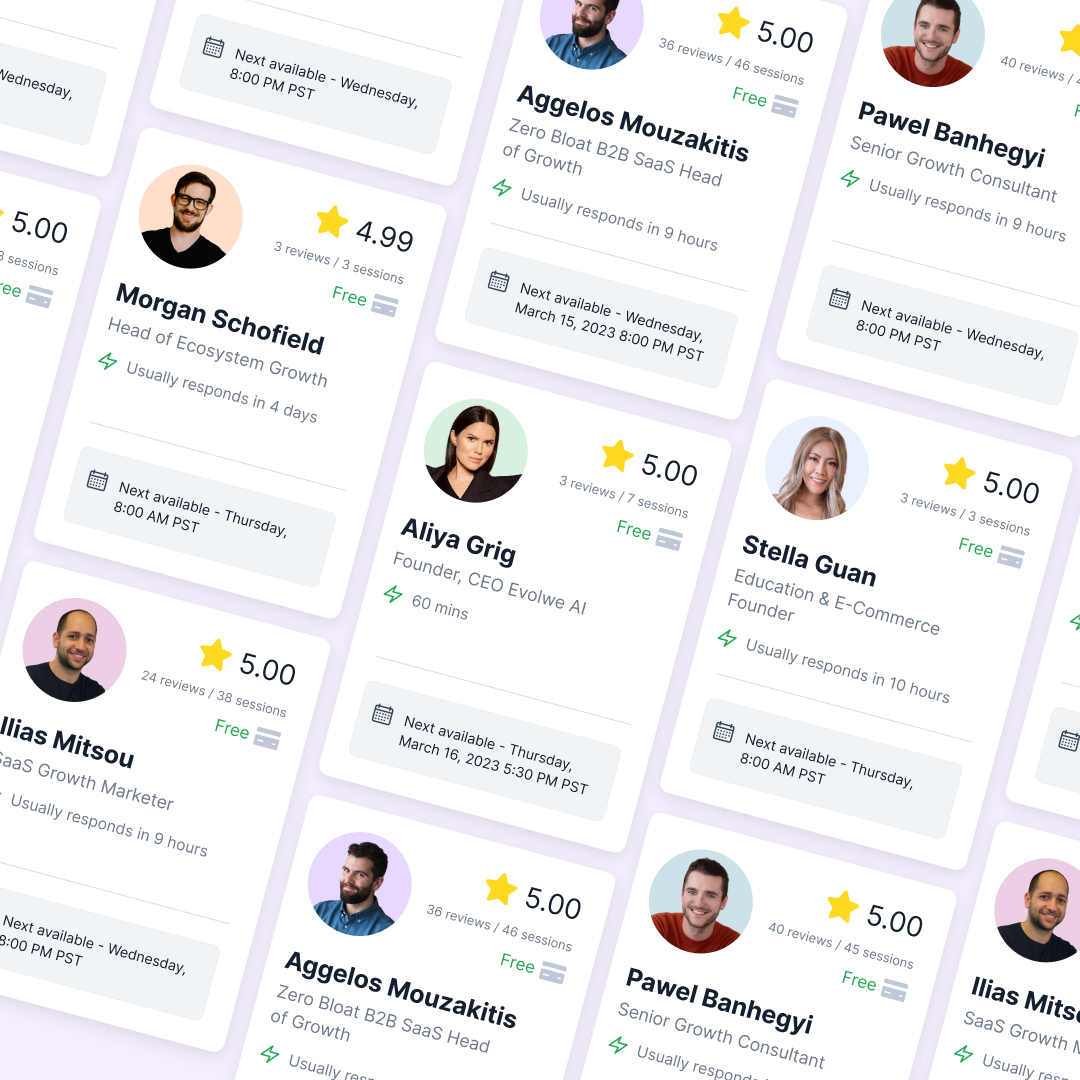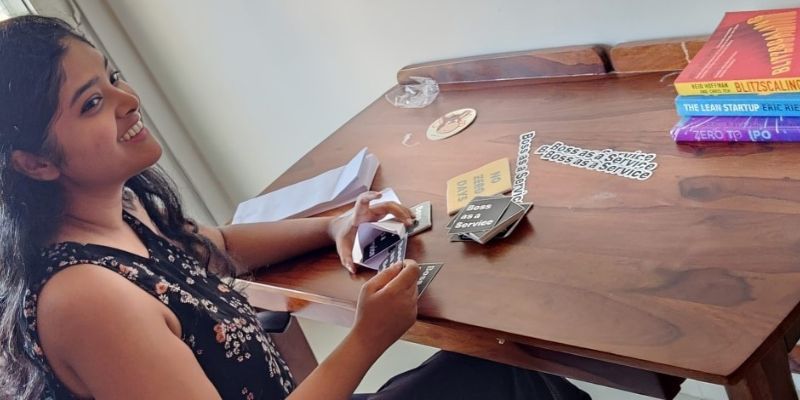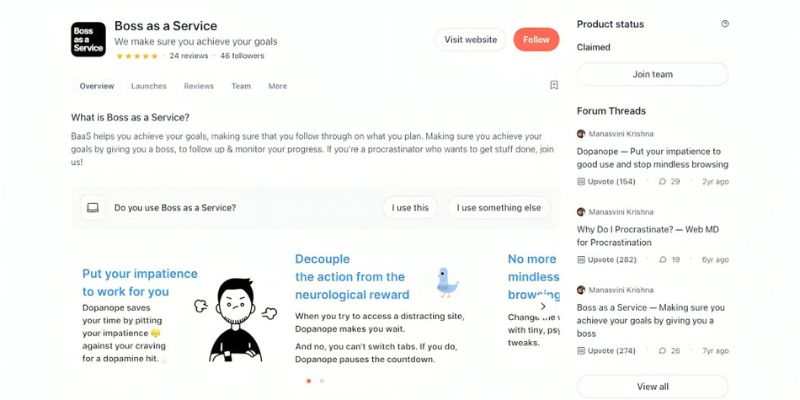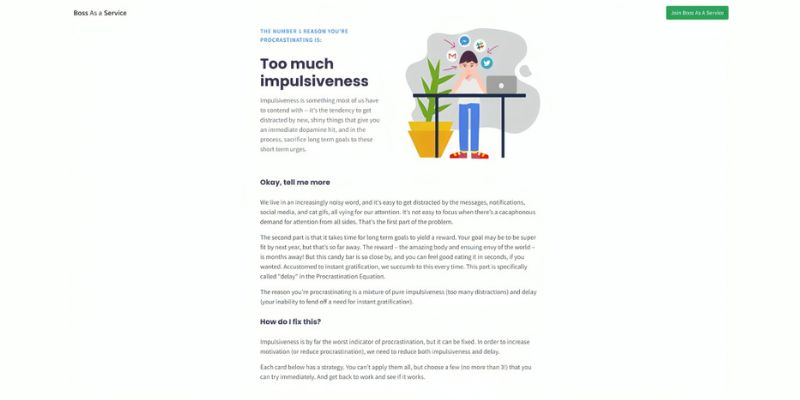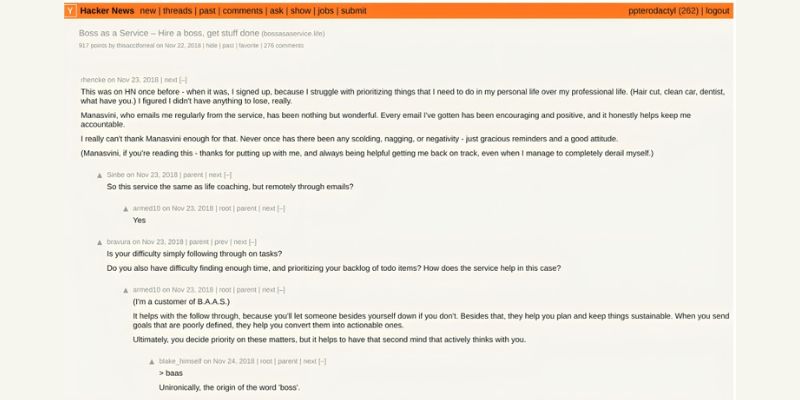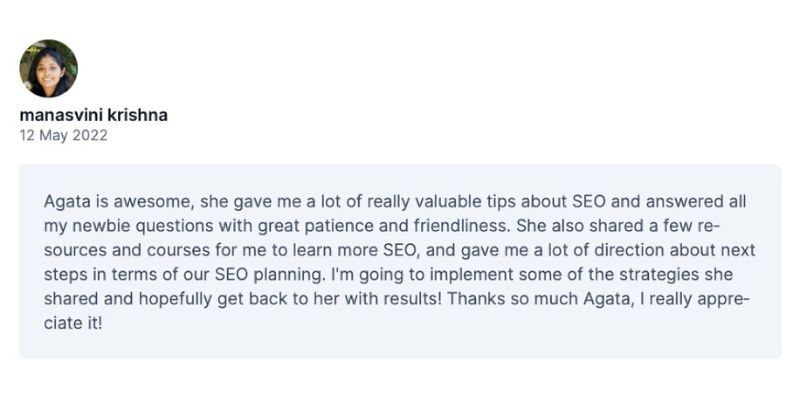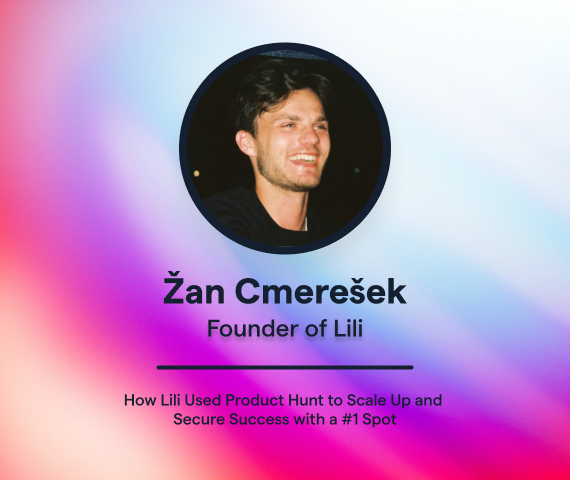How Boss as a Service Went Viral Twice and Scaled to 2,500+ Users
At first glance, Manasvini Krishna’s transition from law to tech entrepreneurship might seem like a leap of faith. But to her, it was a calculated move fueled by personal experience, a deep understanding of human behavior, and an idea that struck a nerve. Today, her startup Boss as a Service has helped thousands of users stay accountable to their goals. But getting there was anything but straightforward.
Through her journey, she has learned how to navigate unpredictable virality, turning personal pain points into a thriving business, and learning the hardest lesson for any founder which is how to let go and scale.
Losing Structure and Finding a Startup Idea
Before she became a founder, Manasvini was a lawyer. Life was structured with deadlines, client commitments, and a built-in system of accountability. But when she left her legal career to start a law tech venture, she quickly realized something was missing which was external accountability.
“I was finding myself in a very bad place in terms of productivity,” she recalls. “At my job, I had people depending on me coworkers, clients, and deadlines. When I started working for myself, all that was gone. If I missed a goal, there was no consequence.”
She needed an external force to keep her on track. When she couldn’t find a service that fit the bill, she decided to build it herself.
The First Customers and Product Hunt Launch
For months, Boss as a Service was just a landing page and Manasvini personally kept users accountable. Her first users came from an unlikely place which was Beeminder, a community of productivity enthusiasts.
“I was already a Beeminder user, and I shared the idea in their forum. A few people wanted to try it out,” she says.
From there, she threw up a simple landing page and launched it on Product Hunt, where the concept caught early traction. But at this stage, she still wasn’t thinking of BaaS as a business. It was a fun side project until things took off in an unexpected way.
Going Viral on Hacker News – Twice
A pivotal moment came when she launched a side project: a quiz called “Why Do I Procrastinate?”, based on the book The Procrastination Equation. The quiz helped users diagnose their biggest productivity blockers.
“I thought it would be useful in an interactive format, so I put it up on Product Hunt and Hacker News,” she explains.
The quiz didn’t just resonate – it went viral on Hacker News, driving thousands of visitors to her site. She smartly linked the quiz results to Boss as a Service, leading to a surge in sign-ups. Three months later, Hacker News picked up BaaS organically, and traffic exploded again.
“It was completely nuts! At one point, multiple people were signing up every minute. It was just me running the service, and I couldn’t handle more.”
She had no choice but to shut down sign-ups and start a waitlist.
Scaling Challenges and Learning to Grow Intentionally
For many startups, virality is the dream. For Manasvini, it was overwhelming.
“I was working 14-hour days, and I had no time for anything else,” she says.
Scaling meant hiring a team, but that didn’t come naturally.
- Letting go was hard: “I struggled to delegate. I kept thinking, I can just do this myself.”
- Early hires didn’t work out: “I made hiring mistakes because I wasn’t intentional about it.”
- The turning point was finding the right Operations Lead: “She’s still with us today and transformed how we run things.”
That hire shifted her mindset. “That was when I realized this wasn’t a side project anymore. It was a serious business.”
Building a Sustainable Growth Strategy
After riding organic traction, Manasvini hit a realization that many founders face: Without a real growth strategy, the business would plateau.
“I was great at launching things. I knew how to get the first few customers. But taking a business from 100 users to 1,000? I had no idea what I was doing.”
She had two choices: hope for another viral moment or learn how to scale intentionally.
That’s when she realized she needed guidance from people who had already been through this stage before. She turned to mentorship.
“I didn’t want to waste months trying to figure everything out on my own. I needed to talk to people who actually knew what worked. That’s when I found GrowthMentor.”
Instead of treating growth as a vague, overwhelming challenge, she started treating it as a structured process – one she could learn, step by step.
One of the biggest breakthroughs came with SEO something she had never focused on before.

SEO felt like this massive, complicated thing. I didn’t even know where to begin. So instead of trying to piece it together from blog posts, I just started booking mentor calls every week.
She approached learning like an interactive roadmap:
- She’d jump on a call with an SEO mentor to solve one specific challenge.
- She’d apply what she learned, get stuck, and book another call to troubleshoot the next hurdle.
- She repeated this process for months, refining her strategy with expert guidance at every step.
The result? SEO is now one of the biggest drivers of traffic to Boss as a Service.
But more importantly, mentorship transformed how she approached growth.
“The biggest shift for me wasn’t just learning SEO. It was realizing that growth isn’t magic! it’s something you can learn, piece by piece, if you talk to the right people.”
Lessons for Founders
Reflecting on her journey, Manasvini shares what she wishes she had learned sooner
- Virality is not a strategy, sustainable growth is. While exciting, virality is fleeting and unpredictable. “It’s fun, but it won’t last. You need a systematic growth plan.”
- Hire sooner than you think. Many founders hesitate to delegate, believing they can handle everything themselves. “If you try to do it all, you’ll burn out.”
- Growth is not magic, it is science. Once she started treating growth as a structured, testable process rather than an abstract challenge, things changed. “Once I saw growth as experiments instead of a black box, everything changed.”
- Good hires make all the difference. Finding the right people and trusting them was a pivotal shift.

My biggest achievement is trusting my team to run things better than I ever could.
What is Next for Boss as a Service
With 2,500+ users and a growing team, BaaS is evolving beyond simple accountability. The company is now focusing on:
- Expanding into coaching and goal-setting support to help users plan and execute their objectives more effectively.
- Developing a mobile app that will make accountability and progress tracking even more seamless.
- Enhancing interactive challenges like Eat the Frog (tackling the hardest task first) and Eat the Elephant (breaking down large tasks into manageable steps) to drive engagement and long-term habit formation.
“We’ve come a long way from just sending nagging messages,” she laughs. “Now, it’s about building a real system to help people achieve their goals.”
Final Thought for Founders
Manasvini’s journey from lawyer to solo founder to scaling a team proves one thing: growth is a skill you can develop.
For founders navigating uncertainty, her advice is straightforward. Start now. Waiting for the perfect moment is a trap, and hesitation only leads to missed opportunities. Growth is not a magical process, it’s an experiment. Testing, iterating, and learning from failures will move a business forward far more than staying stuck in indecision. Founders should seek help, whether through mentorship, hiring, or networking, rather than trying to solve everything alone.
“Just start. Test something, and see if it works. If it doesn’t, adapt and try again. The worst thing you can do is stay stuck waiting for the perfect moment.”
Looking for guidance on your growth journey?
